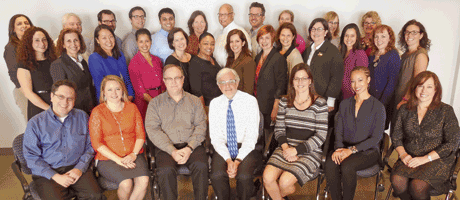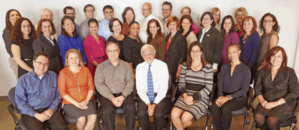Dailycsr.com – 07 September 2015 – The Jones Lang LaSalle, one of the leading firms of “financial and professional services” which specialises in real estates. Moreover, the organisation has operational branches across “80 countries” situated in four different continents. During the process of making the company more sustainable in its operation, it bagged many “energy efficiency and corporate responsibility awards”; the list of its acclamation includes:
“... being named one of America’s 100 Most Trustworthy Companies by Fortune Magazine, one of the 100 Best Corporate Citizens by Corporate Responsibility Magazine and, in March this year, one of the World’s Most Ethical Companies by the Ethisphere for the eighth year running”.
Interestingly, the company has decided to do what no one else usually would; thus they are about to let the cat out of the bag whereby recounting publicly about the “details of its own ethical breaches”, although the company’s general counsel, Mark Ohringer claims:
“I’m not sure if what we are doing is unique but it’s certainly pretty unusual.”
Consequently, they introduced the “Ethics Everywhere Programme” which encourages and spreads awareness among the employees to come up with frank reports of the instances wherein “company’s Code of Business Ethics” has been/ being violated while in return they get over their fear of being retaliated. The instances could range between inappropriate use of the internet, to expenses being fiddled which lead to either theft “or improper vendor/client payments”. These issues are then investigated by “Ethics Officers” of the company and gauging the severity of the situation the employee involved may undergo anything between “extra training to sackings and prosecution”.
In the beginning the said attempt was only a means of keeping an internal control in the company; while with the passing time as more and more clients got inquisitive about “governance and ethics, sustainability and supply chains” of the JLL, the company decided to go public with its data.
“Of course there’s the fear that if you tell about the bad things happening in your company you could get a negative response,” says Ohringer. “But our clients are adults, many of them are big companies themselves. They know that no-one is free from these kind of issues. If we say we are ethical it means that we go to great lengths to try and keep as clean as possible and to deal with any breaches.
“We trust our clients to appreciate our candour. And they do – some of them say they’re getting information about us that they’re not even getting about their own companies.”
However, there is a catch in the approach as Ohringer says:
“Ethics statistics are difficult to interpret. As he points out, an increase in the number of complaints could mean that the ethical environment has deteriorated or it could mean that employees are more comfortable communicating their concerns. As the percentage of complaints requiring action has remained fairly steady we believe that the latter is the case.”
The company understands and fully respects that some culture is more pro towards personal privacy, although almost “83% of employee concerns” chose to directly confess themselves as oppose to taking indirect routes which were as easily available, for the employee reporting can choose to be anonymous. Thus, it goes to prove that:
“employees feel safe speaking out and understand that it is better to say something if they feel uncomfortable than suffer in silence”.
The company feeds the complaints along with the results of them from the Ethics Officer, in charge of the respective cases, in a programme and generate a “metric report” two times a year. JLL took baby initial steps and learnt from its mistakes as it went ahead through improvisation. Although the success of the programme lies with the mutual collaboration, as the employees need to:
“...understand the benefits of working in an company that takes ethical behaviour seriously, both in terms of the enhanced reputation of the company and client trust as well as a sense of pride in working for a trustworthy organisation and being able to pursue your career goals in a work environment based on mutual respect”.
References:
http://www.ethicalperformance.com
“... being named one of America’s 100 Most Trustworthy Companies by Fortune Magazine, one of the 100 Best Corporate Citizens by Corporate Responsibility Magazine and, in March this year, one of the World’s Most Ethical Companies by the Ethisphere for the eighth year running”.
Interestingly, the company has decided to do what no one else usually would; thus they are about to let the cat out of the bag whereby recounting publicly about the “details of its own ethical breaches”, although the company’s general counsel, Mark Ohringer claims:
“I’m not sure if what we are doing is unique but it’s certainly pretty unusual.”
Consequently, they introduced the “Ethics Everywhere Programme” which encourages and spreads awareness among the employees to come up with frank reports of the instances wherein “company’s Code of Business Ethics” has been/ being violated while in return they get over their fear of being retaliated. The instances could range between inappropriate use of the internet, to expenses being fiddled which lead to either theft “or improper vendor/client payments”. These issues are then investigated by “Ethics Officers” of the company and gauging the severity of the situation the employee involved may undergo anything between “extra training to sackings and prosecution”.
In the beginning the said attempt was only a means of keeping an internal control in the company; while with the passing time as more and more clients got inquisitive about “governance and ethics, sustainability and supply chains” of the JLL, the company decided to go public with its data.
“Of course there’s the fear that if you tell about the bad things happening in your company you could get a negative response,” says Ohringer. “But our clients are adults, many of them are big companies themselves. They know that no-one is free from these kind of issues. If we say we are ethical it means that we go to great lengths to try and keep as clean as possible and to deal with any breaches.
“We trust our clients to appreciate our candour. And they do – some of them say they’re getting information about us that they’re not even getting about their own companies.”
However, there is a catch in the approach as Ohringer says:
“Ethics statistics are difficult to interpret. As he points out, an increase in the number of complaints could mean that the ethical environment has deteriorated or it could mean that employees are more comfortable communicating their concerns. As the percentage of complaints requiring action has remained fairly steady we believe that the latter is the case.”
The company understands and fully respects that some culture is more pro towards personal privacy, although almost “83% of employee concerns” chose to directly confess themselves as oppose to taking indirect routes which were as easily available, for the employee reporting can choose to be anonymous. Thus, it goes to prove that:
“employees feel safe speaking out and understand that it is better to say something if they feel uncomfortable than suffer in silence”.
The company feeds the complaints along with the results of them from the Ethics Officer, in charge of the respective cases, in a programme and generate a “metric report” two times a year. JLL took baby initial steps and learnt from its mistakes as it went ahead through improvisation. Although the success of the programme lies with the mutual collaboration, as the employees need to:
“...understand the benefits of working in an company that takes ethical behaviour seriously, both in terms of the enhanced reputation of the company and client trust as well as a sense of pride in working for a trustworthy organisation and being able to pursue your career goals in a work environment based on mutual respect”.
References:
http://www.ethicalperformance.com


 The ‘Ethics Everywhere Programme’ Brings Out The ‘Bad-side’ Of The Employees For Betterment
The ‘Ethics Everywhere Programme’ Brings Out The ‘Bad-side’ Of The Employees For Betterment





 Companies
Companies